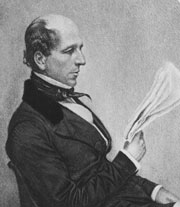antiwar post: Civil War Propaganda and New England by George Winston Smith
According to George Winston Smith, Northern civilizations made the American civil war their own. It was very critical politicians and general a like, were quivering between hopes of victory and terrifying pre- directions of the future, calling for repair against uncorrected wrongs, people of the North wrote letters to the press, also sent petitions to congress, and staged mass meetings and gathered in private groups to analyze almost every policy that was related to conflict. Because of an ineffective and mostly periodic censorship, the military was common knowledge. However, to a great extent the direction of public opinion became the function of non- governmental agencies .
With american tendencies for joining together in organizations, it became very clear that organizations such as clubs, leagues, and societies especially for the” enlightenment”, for fellow citizens through the “diffusion”, of “correct” information and in Boston it was a successful merchant in China trade and railroad capitalist, John Murray Forbes who led such a movement. During the summer of 1862 Forbes began to select important editorials from the daily editors such as the New York Evening post and the Boston Advertiser which led to stalwarts among the antislavery press. Businessmen and civil leaders were already aware of the issues. The masses were instructed that the war was a struggle between aristocracy and popular government. During the fourth week in January, 1863, Forbes drew up a “ rough sketch of a club for republishing”and sent it to his friend Samual J Ward.
James B Thayer, a young Boston lawyer of literary bent, who was nearly ten years away from his profession in law school. However,although Loweel took no direct part in the society, he maintained close friendship with Norton, who later became the editor of this publication. Thayer and his sister Sara worked as a clerk, and were soon installed in an office, which was a general clearing house for correspondence and the scene for editorial work for Norton, carefully reading layers of news papers, clippings, attaching editorial headings, even writing dozens of leading articles himself. However voluntary subscriptions did not equal the amount in which Forbes needed to carry out other far reaching propaganda plans but there was an appreciation of the need for influencing opinion among a sufficient number of Boston businessmen. However the executive committee in addition to Forbes, Norton and Thayer, also consisted of Reverend Edward Everette Hale, a unitarian clergyman, who had tried to win Kansas for “free labor “ in the 1850’s.
However, Boston merchants Henry B. Rogers and William Endicott Jr, also served on the committee ( the latter also as Treasurer), and was elected president of Massachusetts Institute of Technology. Forbes , the New England loyal publication society at first distributed printed slips that were sent to newspapers. However, within a short amount of time it was publishing its own broadsides, and eventually some of them were paper size printed on one side good rag- content “white” paper with a banner on top, carrying the society’s name.



No comments:
Post a Comment